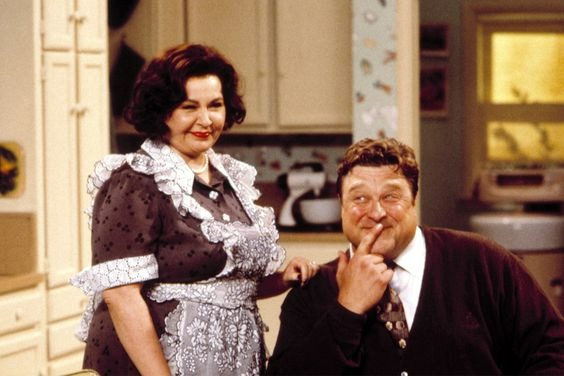
For a series that exuded so much warmth, its ending felt uncharacteristically cold.
The furniture was ugly, the jobs were unglamorous, and there was nothing sexy about the fictional town of Lanford, Illinois. Money wasn’t abundant, often scrambling just to make ends meet. Living paycheck-to-paycheck, the blue-collar, middle-American Conner family was just trying to get by with some laughs along the way. Roseanne, in its original nine-season run, showed the realities of what life was like for millions of people who, too, were living on a prayer. They were meager in money and rich in love. The show’s intro has the cast enjoying a meal with each other, happy in spite of not having much. So, it’s surprising then that for a series that exuded so much warmth, its ending felt uncharacteristically cold.
For the first eight seasons of the series, Roseanne was one of the most relatable series to ever be on television. The kids misbehaved; bills were paid late; and jobs were lost. It was a show that broke away from Hollywood’s propensity for sitcoms with financially-comfortable families, choosing instead to show the lives that many people lead, low-wage jobs and all. And Roseanne (Roseanne Barr) was a matriarch whom television hadn’t really encountered before: brash, impatient, and the master of rejoinders. The domestic goddess was the lord of her home. Blue-collar realities were the bedrock of Roseanne’s storylines — broken dreams, simple pleasures, and generational blueprints followed.
How Did ‘Roseanne’ Change in Season 9?
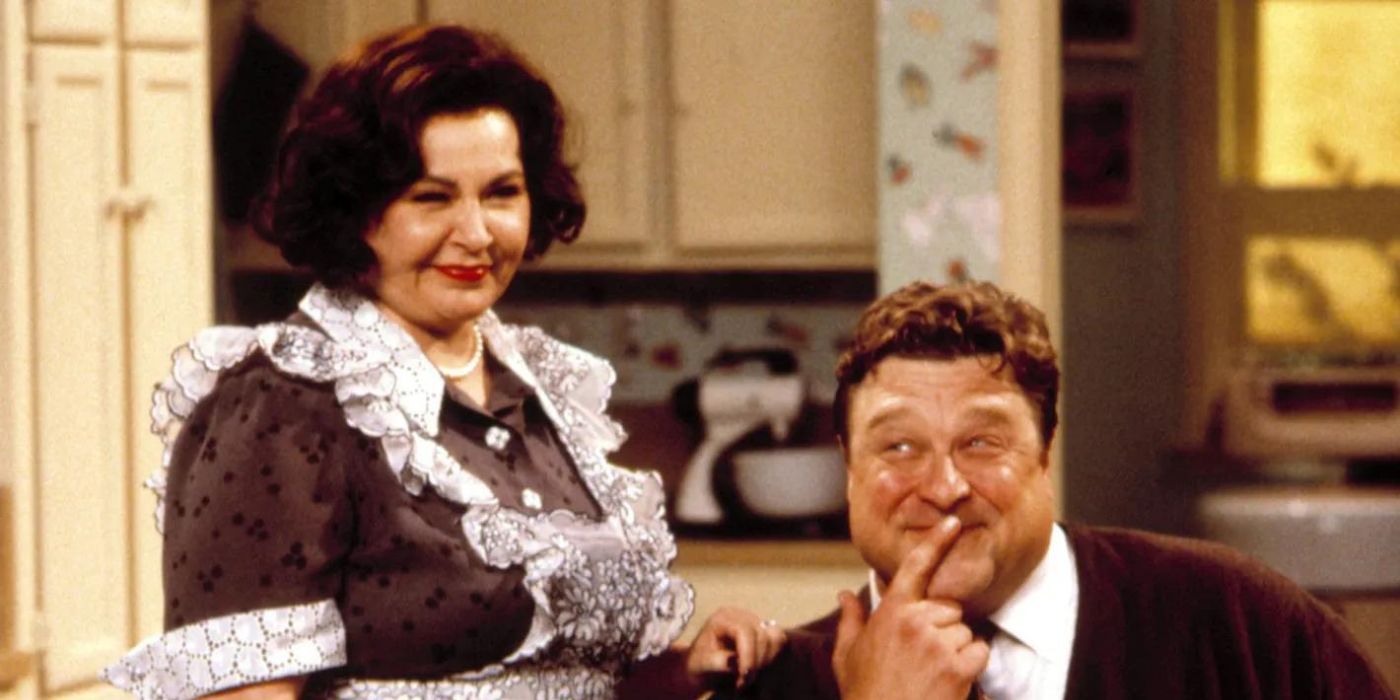
Season 9 was when everything changed for the worst. Veering away from the barely-getting-by ethos that kept the show grounded, the Conners won the lottery in the ninth season. Now, instead of looking over unpaid bills and trying to scrounge something together for dinner, Roseanne was going to exotic spas, saving Hillary Clinton from terrorists on a train, and meeting with the rich elite. It was no longer the same show, despite its insistence that money wouldn’t change them. Considering that most people in the country weren’t wooed by a prince who whisks them away to his palace like Jackie (Laurie Metcalf) was, the show no longer reflected the viewers who watched and loved it, seeing themselves in the Conners’ daily struggles. Dan (John Goodman) has an affair that feels like a betrayal to the series; Roseanne and Dan’s good-but-not-perfect marriage was central to the show. His infidelity wasn’t the Dan viewers had spent eight seasons rooting for.
The ‘Roseanne’ Series Finale Ends On a Bleak Note
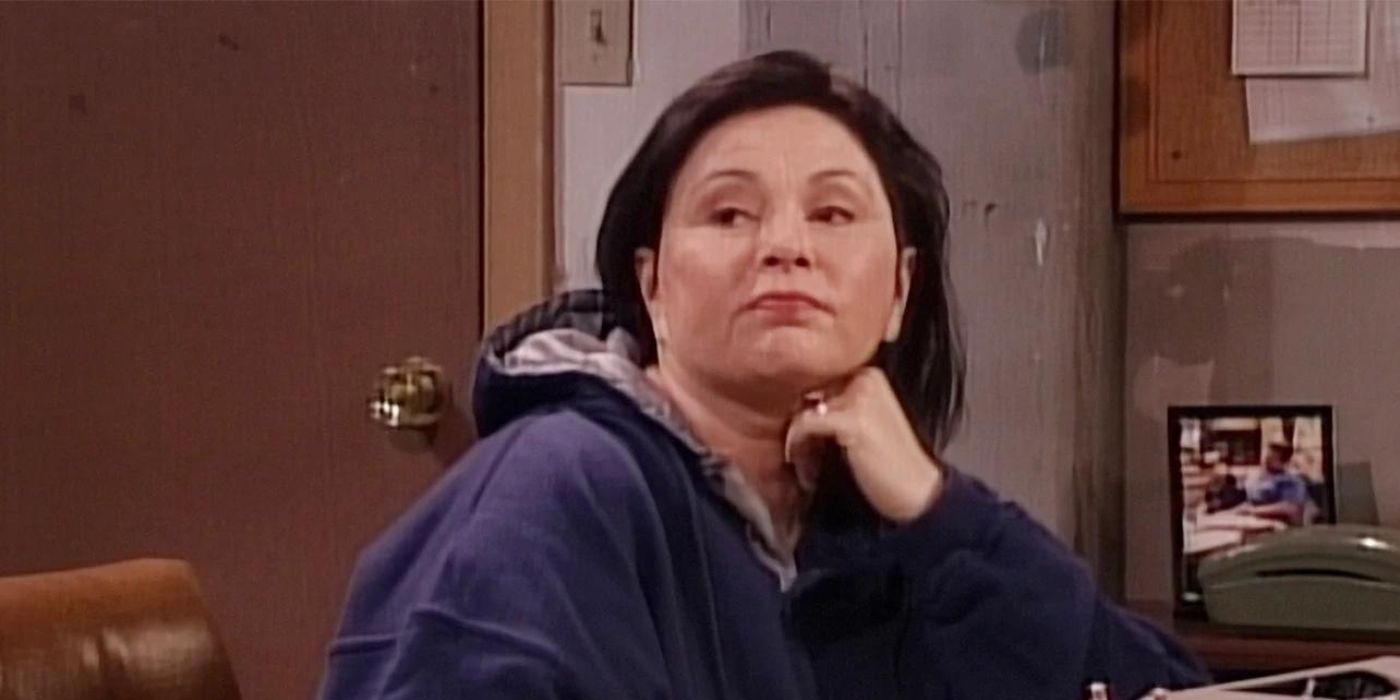
Considering how far the show had managed to fall off course in just one season, the series finale served as an attempt at realigning it with what made it so loved. In its last episode, everyone is back home from the hospital after Darlene (Sara Gilbert) and David (Johnny Galecki) nearly lose their premature daughter, Harris. The family and friends are relieved that Harris managed to survive. Darlene and David are living with Roseanne and Dan until they get back up on their feet. Everyone takes turns visiting Harris in her crib; they’re shown from Harris’s point of view, saying something goofy and well-meaning to her. It’s also revealed that Becky (Sarah Chalke) and Mark (Glenn Quinn) are expecting, but decide to keep it a secret for now. Eventually, everyone congregates in the kitchen for the last meal of the series. Roseanne is taking in the perfection of the moment: everyone’s happy, enjoying food and each other’s company. After a tumultuous season, everything has returned to normal, except that it hasn’t. Roseanne begins to narrate while looking around the room full of people.
First, she singles out Leon (Martin Mull). She says, “Everyone wonders where creative people get their inspiration. Actually, I’ve found it’s all around you. Take Leon, for instance. Leon is not really as cool as I made him.” And with those two words — “made him” — the finale begins to take a drastic turn. She goes on to talk about how she really did introduce Scott (Fred Willard) to him in real life and that he was actually a probate lawyer. She concedes that she wasn’t very creative with that. At this point, viewers are still wondering what Roseanne is exactly talking about. She then looks at her son DJ (Michael Fishman) and narrates about how people think her son is a nerd and that nerds are artists who listen to the beat of their own drum.
Her mother, Bev, (Estelle Parsons) pops into the picture. Roseanne reveals that her mom isn’t actually a lesbian and that she reimagined her mom as being gay because she wished her mom had a better sense of herself as a woman and took more control of her own life. Roseanne then fixes her gaze on Jackie. She reveals that Jackie is actually gay in real life, but for some reason, Roseanne always pictured her with a man, so she remade her as straight. It has now become clear that none of what viewers have seen this season is real. In reality, Roseanne is writing a book, and everything that has happened has been a figment of Roseanne’s imagination.
Roseanne then looks at Nancy (Sandra Bernhard) and narrates that she admires Nancy for getting out of a terrible marriage. In her book, Roseanne sends Nancy’s husband into outer space. Next, the camera shifts to Becky and David sitting next together. Roseanne goes on to say that she always pictured David being a better match with Darlene, so in her book, she made Darlene and David a couple instead. Then the camera moves across the table toward Darlene and Mark. Darlene and Mark are actually a couple, but Roseanne felt Becky and Mark would be a better pairing, so she made them a couple in her writing. And then the camera angles toward where Dan was sitting, but the chair is empty. In reality, Dan died of a heart attack a year earlier. Unable to cope with the loss of her husband, Roseanne has been telling her story as if Dan had been alive for the past year and took viewers with her in this embellishment.
The merry kitchen setting, with happy friends and family seated around the table, begins to fade, leaving Roseanne alone in the basement she uses to write in. Speaking about the pain of losing Dan, she talks about how her writing is what helped her through the grief of his death. Feeling betrayed by his death, she says that it felt like he left her for another woman; hence, her creating Dan’s affair earlier in the season. Finally, she begins her final mea culpa. In the wake of Dan’s death, she, like many blue-collar women who have to deal with the aftermath of a dead spouse, felt a sense of dread and impending financial doom when her partner and co-provider died. To create in herself a sense of security, she wrote that her family had won the lottery. The swanky parties and luxury spas never actually happened, instead simply serving as mental vacations from the emptiness she now faced. It was easier for her to imagine her life like so many of the sitcoms, the ones where no one has any real hardships and their problems are resolved by the end of the thirty-minute episode. Overtaken by loneliness, Roseanne even imagined herself being with someone else, which explains the storyline in Season 9 when Roseanne has a brief relationship with Edgar Wellman (James Brolin).
Roseanne Finds Herself Through Her Writing
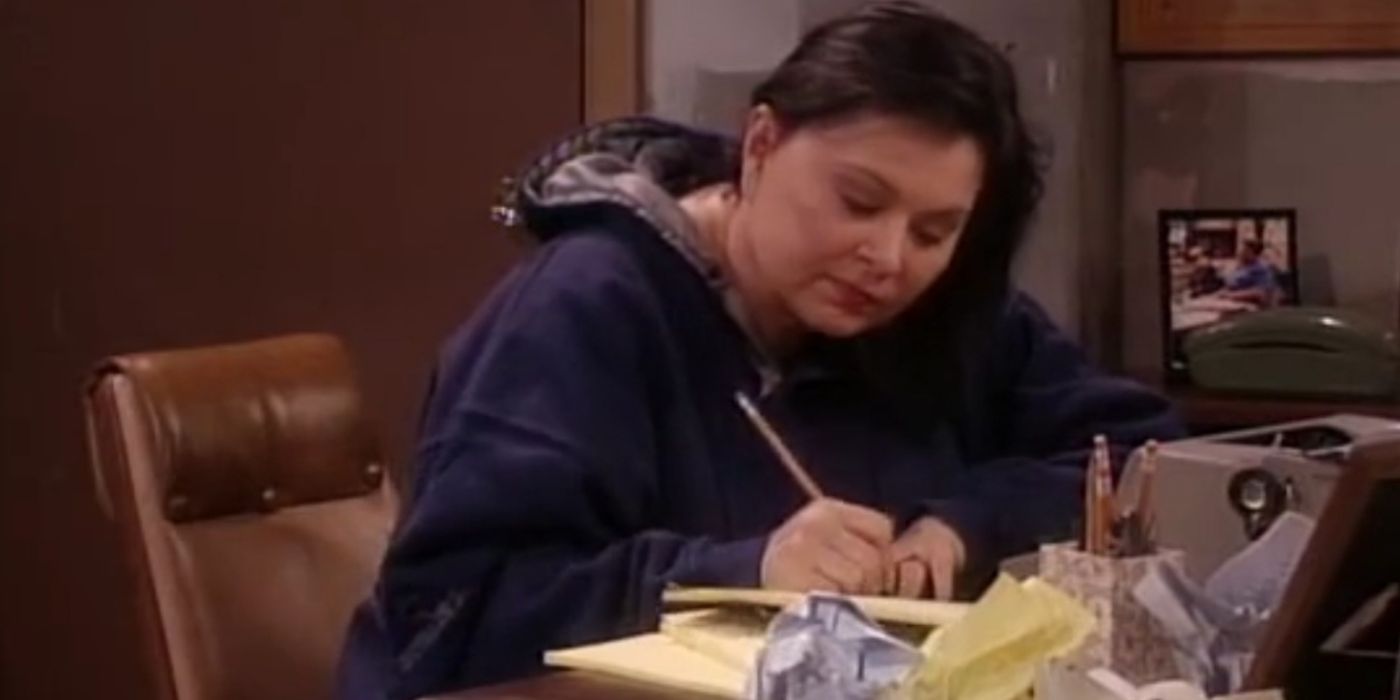
When Darlene’s baby almost died, Roseanne realized that her family needed her to be present. And seeing her granddaughter fight for her own life, Roseanne decided that she needed to fight for hers. In embracing her life, Roseanne realized that her long-held dreams of being a writer would never materialize if she didn’t actually start, so she decided to write about her life. Whatever she didn’t like in her life, she would rearrange in her writings, which is what viewers had been watching and, up until the final episode, were unaware had been fabrications. Roseanne reflects on all that she has learned: dreams won’t come true without action; love is stronger than hate; and she believes God does exist. Her book is now complete.
The series ends with her sitting on her couch, alone in an empty house. A quote from Lawrence of Arabia’s T.E. Lawrence appears:
“Those who dream by night, in the dusty recess of their minds wake in the day to find that all was vanity; but the dreamers of the day are dangerous men, for they may act their dream with open eyes, and make it possible.”
Then we get one more of Roseanne’s famous laughs.
Roseanne’s ending has been one of the most controversial endings of a series. A show that had so much warmth, people laughing and sitting around a table, ended with its protagonist alone. For many, it was an unsatisfying ending, upending what made the show great: they may not have a lot of money, but they had each other. Seeing a woman like Roseanne, who had the spirit of a phoenix, sitting alone on a couch as the picture fades wasn’t how we imagined how our domestic goddess’ story would end. The series did, however, culminate on a feminist note as Roseanne says in her final monologue:
“We didn’t teach our daughter to sacrifice more than our sons. As a modern wife, I walked a tightrope between tradition and progress, and usually, I failed by one outsider’s standards or another’s. But I figured out that neither winning nor losing count for women like they do for men. We women are the ones who transform everything we touch, and nothing on earth is higher than that.”
Throughout the series, we see Roseanne work many different jobs: factory worker, salon cleaner, server, and restaurant owner. But her true goal was to be a writer, something that the series gives a little attention to. In an episode where Dan and Roseanne get a rare night out in a decent restaurant, Dan asks Roseanne what she’d really like to do; she dreamily says she’d like to write, as if it’s no longer a possibility. Her family creates a writing space for her in the basement, which is referenced in the penultimate and final episodes. But earlier in the series, when she has the space and the seldom time to write, she finds herself doing everything but writing, not being able to focus on bringing her dream into reality. It took the enormity of Dan’s absence for her to truly hone in on her dream.
The ‘Roseanne’ Reboot Tries to Retcon Its Original Ending
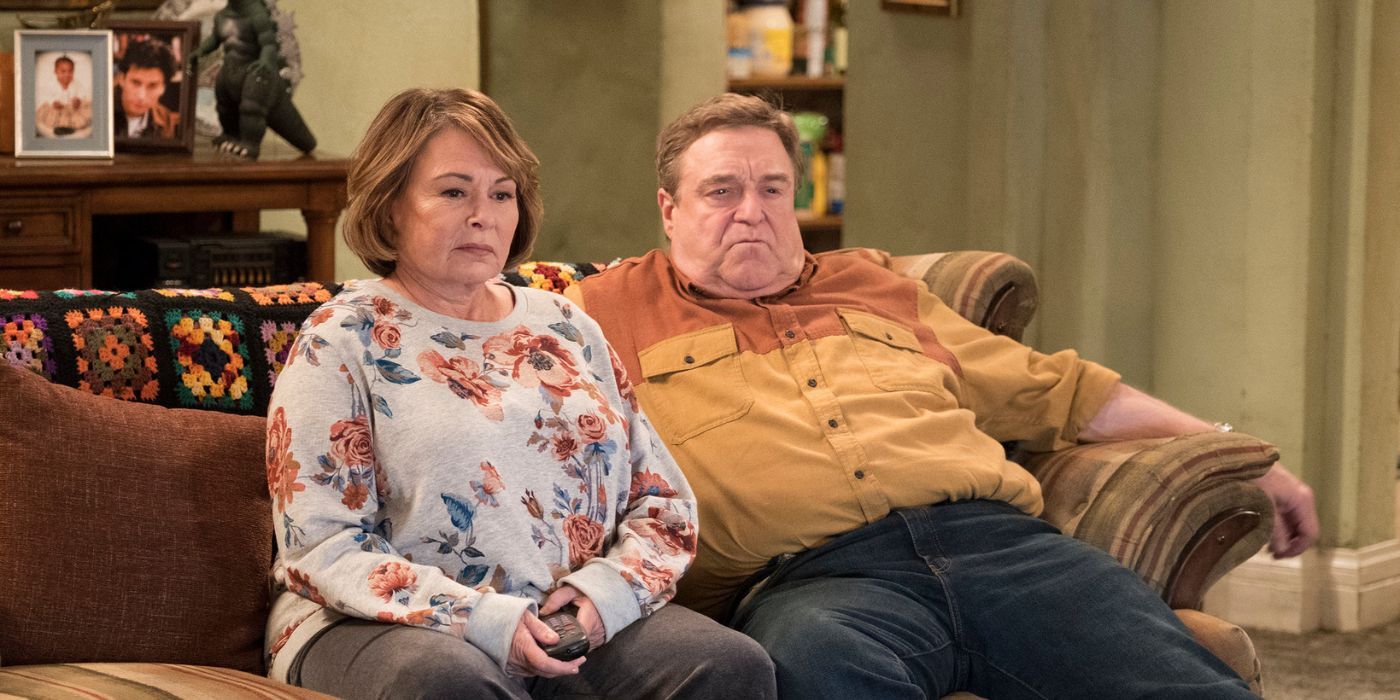
In Roseanne’s 2018 revival, the series, once again, course corrected. In the reboot, Dan is alive, and all is back to normal in the Conner house — well, somewhat normal. With Barr’s new embrace of far-right politics, the blue-collar spirit of the show was warped into an unsatisfying zero-sum game where progressive, feminist, queer-inclusive, working-class values clashed with the bigotry that fueled and fomented the Trump presidency. Roseanne took an “agree to disagree” approach to diverging political culture that was out of touch with the Roseanne viewers fell in love with in 1988. In the first episode of the reboot, Dan and Roseanne come across the book Roseanne wrote at the end of the original series. Roseanne jokes about how her book’s ending was a disappointment and tosses it to the side in an attempt to cleanse itself of some of the big risks and big losses the series took with its ‘97 finale.
In 1988, viewers were introduced to a woman trying to make ends meet with her factory job and contractor husband. Her kids were wild, and her house was plain. They didn’t have a lot, but they had each other. And for eight seasons, so many of us saw a dysfunctional family who looked so much like our own.
